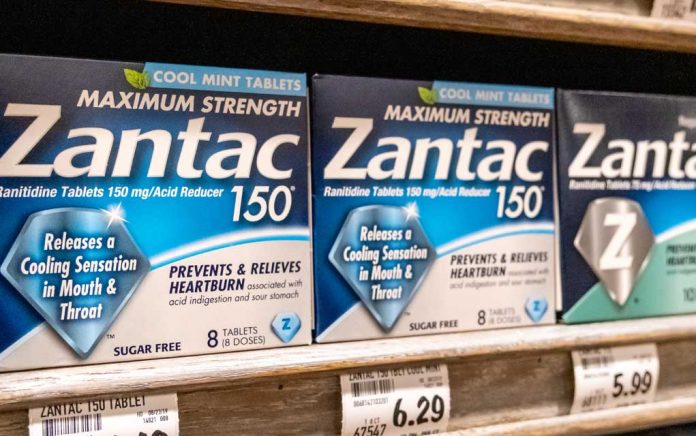
(HealthyResearch.com) – In April of 2020, the FDA released a formal request for all forms of the heartburn medication Zantac to be pulled from the market. This came after months of investigations into its possible contamination with a chemical known to cause cancer in humans. Some people may be wondering if it’s safe to take the Zantac they have, but the contamination issues may span beyond specific batches. Here’s what we know.
Ongoing Investigation
The FDA’s been searching for a source of the contamination, but information is limited so far. There’s some evidence that the chemical in question, N-nitrosodimethylamine (NDMA), occurs during the manufacturing of Zantac’s active ingredient, ranitidine, but the details are sketchy. NDMA levels appear to increase in the medication over time and also when it’s been stored at higher temperatures, but no one has been able to pinpoint why.
This isn’t an isolated event, either. Authorities have also found NDMA in the diabetes medication metformin, as well as some blood pressure medications, and its presence in those medications has remained a mystery. Unlike those for Zantac, recalls on these other medications have been lot-specific.
Alternatives to Zantac
The FDA says anyone currently taking Zantac should stop and find an alternative. There’s no telling how any particular shipment has been stored, or even what types of conditions it was subject to during transport, so it’s impossible to predict contamination levels by lot or batch.
Fortunately, Zantac isn’t the only heartburn medication available. People interested in alternatives can talk to their doctors about changing to another medication in the same class, such as Pepcid or Tagamet. Medications that reduce stomach acid differently, like Nexium, Prevacid and Prilosec, can also do the job, but MedTruth warns that these alternatives may increase risks for stomach cancer and certain infections.
Keep in mind that none of these medications was designed for people to take long-term. People with chronic heartburn may want to consider cutting food triggers and altering lifestyle choices that might make a difference without medication. Harvard Health recommends eating small, slow meals, avoiding carbonated drinks, quitting smoking and avoiding rigorous activity on a full stomach. Sleeping on an incline and losing any excess weight can also help.
Zantac is not safe by any definition, but users have plenty of options — and they shouldn’t waste any time choosing their alternatives. Long-term users may need to consider the possibility that they’ve been exposed to this cancer-causing agent for years. Hopefully, the FDA will have more information on specific cancer risks for people who’ve suffered long-term exposure as they release additional updates.
~Here’s to Your Health & Safety!
Copyright 2020, HealthyResearch.com
















